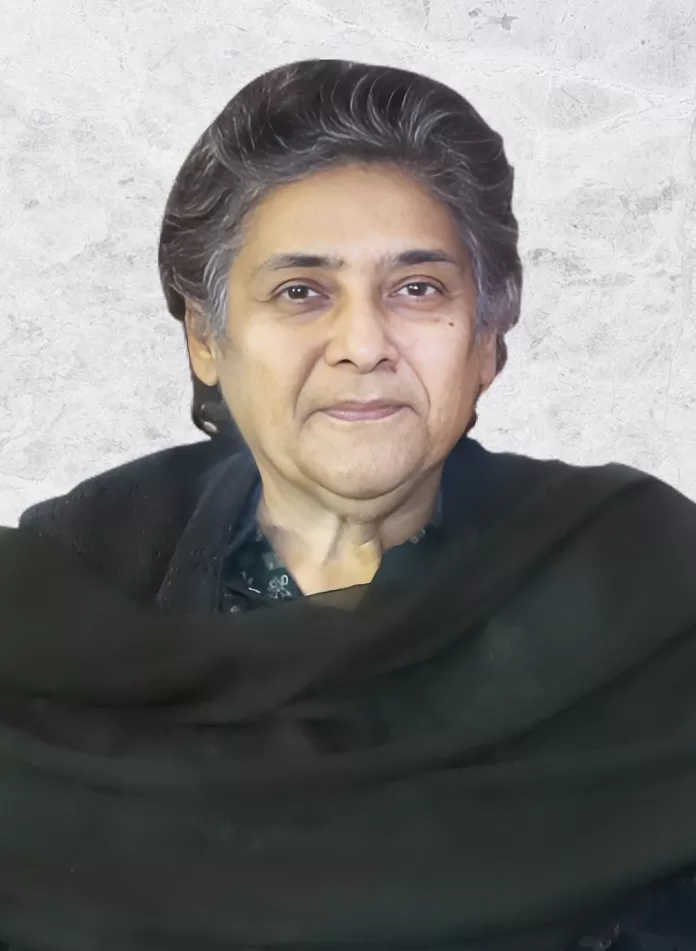Shaheen Attiq-ur-Rehman is a social worker and was a politician. Born in April 1949 in Sialkot, she obtained the degree of M.A. (Administrative Sciences) in 1971 and of LLB in 1975 from the University of Punjab during 1984-1985. A Member of the Punjab Assembly during 1985-88, she served as Minister for Social Welfare & Women’s Development during that period. She returned to the Punjab Assembly for the second term in 2002 on a reserved seat.
Shaheen Attiq-ur-Rehman was awarded the Commuines Medal in 1998 by UNESCO in Paris in international recognition for her work in Literacy King Sejong Award given by UNESCO Head Quarter Paris The Presidential Award Aziza-eFazilat by the Government of Pakistan. She has extensively travelled abroad as a representative of the Pakistan Government & BUNYAD, visiting nearly 42 countries including the Indonesia, France, USA, UK, Japan, China, Switzerland, Italy, Germany, France, Indonesia, Malaysia etc. She is currently the Executive Director/Vice Chairperson of NGO Bunyad.
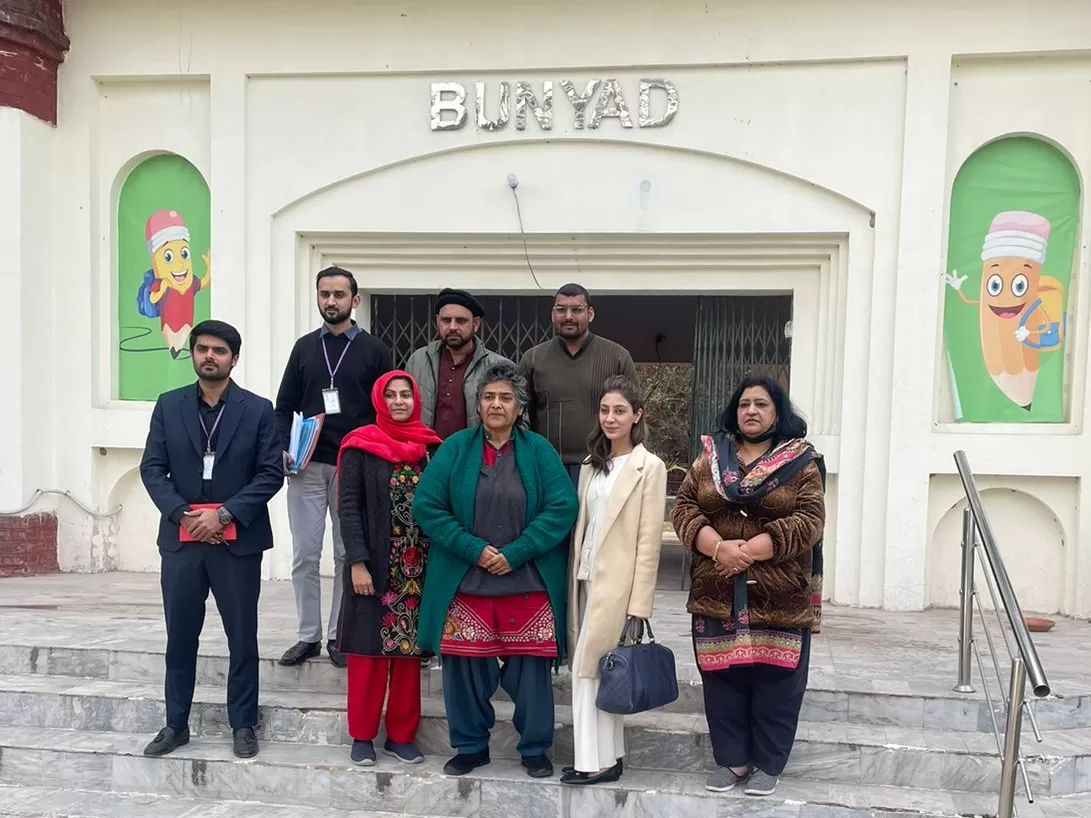
INTERVIEW
When did you start the journey of Bunyad and what was the motivation behind it?
My motivation was to help the poor. Born into an where elitist family grew up various cities of Pakistan. Working as an LMC Counsellor, for the first time I Interacted closely with the poor. I was l tasked with the slums of Lahore and got the shock of my life to see how the others lived. Ten or more people living together in a room and using a single toilet. Our attitudes have not changed much due to our huge number of illiterates, the largest in the world That’ s when I realized that the only way to help rural women is through literacy. Up till now we have directly made 21 lakh women literate our total beneficiaries are about 31 lakhs. As a Minister when we started the Literacy Program, it was a difficult task because there was Resistance from the Education Department as literacy is an alternative form of education.
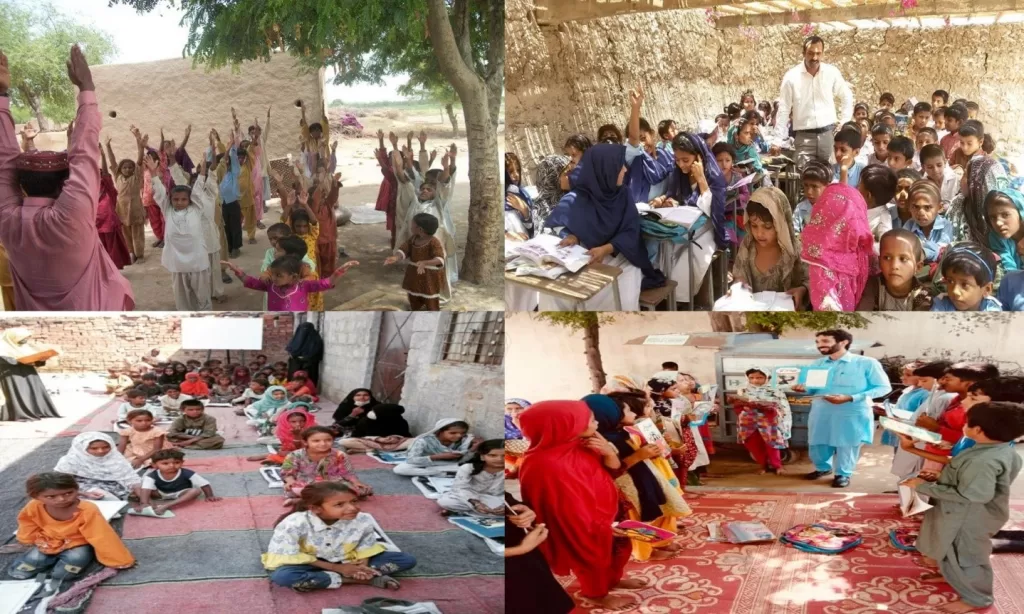
School education looks after children aged between five to 9. I wanted to educate the youth because I think they are the turnaround. Syed Fakhar Imam, the then Minister of Education, tasked me the program for adult education. I saw an immense acceptance by the people, who wanted to learn because they were being deprived of the written word. When this program was started Pakistan had the second-highest population of illiterates. Today it has the highest because we are breeding like anything. I sat and thought a lot about it. Our success was so positive that I lobbied with the Government, to start the Literacy Department in Punjab. Fortunately I became the first Minister of Literacy.
Then I left everything and started a new going back to the basics and slowly started BUNYAD, Bunyad Literacy & Community Council! We have completed 187 projects so far, spanning across 14 Districts all over Punjab. In the beginning, we started with one District. The first was Hafizabad, which was one of the most deprived. It was a Tehsil then, and now it has become a District. However, conditions are still dire, especially for women. Still there is the issue of domestic violence, particularly wife-beating by their husbands where she is kicked her in the stomach, often resulting in Epilepsy of the newborn. After Hafizabad, it was Multan, my favorite as I studied in Multan and the urban –rural was more stark. After that, people slowly started getting interested, in Learning. Donors were very helpful. That made it possible to expand.
So are you seeing any change from that?
Immense change. The number one change is that enrolment has increased among women wherever they have access. When mothers understand the value of education, they enrol their daughters in school. And that is the mindset changes. Development means changing attitudes. The elitist mindset in Pakistan remains prevalent. It doesn’t not like to share, even in small towns. According to our mindset, if a woman’s head is uncovered, then she is considered badmash (rogue) but if a man is naked, then that’s okay. They were mis-using Islam. My opinion is that if women and men are performing Hajj together, then why should women have to face such restrictions? But slowly, it started to change.
Non-Formal Education in rural areas
As we delved deeper into the issue, we realized that other aspects needed to be addressed, things that these people also wanted to change. So we branched out into many other areas. For example we did a lot of work on Child Labour. Our most successful project in child labour was teaching who were stitching soccer balls. That was an immense success. In Sialkot one of our teachers in one of our centers was working for children’s education. She encouraged me to aim higher. BUNYAD financed her till High School Level. Then she inspired us to establish a college. We took the initiative and acquired land. Today we have over 700 students MashaAllah. We have made that Teacher independent. It’ s amazing her work we empowered her, and now she’s on her own. She doesn’t need us anymore. That is what development is. Her name is Farzana and Bhagwal is the village. That is our target is when a person stands on their own feet and says come & drink tea, but I wont take any orders. I don’t take money that is development. When they know how to walk on their own. That was the big thing that basic thing vision be shared.
When UNESCO came in a big way, they noticed my success story especially when the country had very low targets in adult education they started inviting me, first to Bangkok which was their Regional Office at that time, and then to Paris. I became one of the twelve so-called experts in adult education. In Paris, I won two awards. One was the Jan Amos Comenius Prize, named after the Czechoslovakian philosopher who advocated for the common man.
The other one was from the Korean National Commission the King Sejong Award. They were very pleased with our work and they are still supporting us. We still have their operational centers.
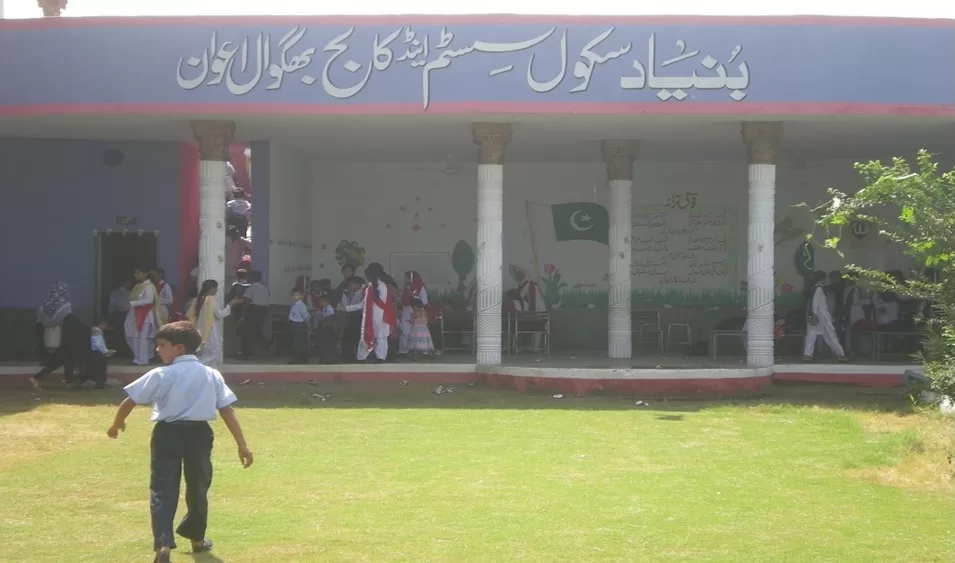
How do you see UNICEF and UNESCO working in Pakistan? Do you feel that they have their agenda?
Why do you treat your servant as a servant? You are not going to tear his clothes, right? They have their own agendas, yes the donors, because the money comes from the West they have their agendas. I recruited their women as teachers and gradually approached them. I emphasized that if they couldn’t write Allah’s name, then they wouldn’t be forgiven. One issue is that they are completely illiterate to even understand the word & And BLCC did this making them understand the word Allah the first.
Once they understood the words they spoke, they started getting interested. With this curiosity arose. Then we developed books, which were taught in 480 hours over about seven months. For example we taught them numerals and joining words, and in the local context, we taught them what an F-I-R means.
Once they understood the words they spoke, they started getting interested. With this curiosity arose. Then we developed books, which were taught in 480 hours over about seven months. For example we taught them numerals and joining words, and in the local context, we taught them what an F-I-R means.
We taught them how to fill BayForms. Like that, we got them started. And it worked tremendously. Now we are teaching them the Quran with Urdu translation.
What was your motivational target to educate these people?
I told them to write the word “Allah.” Write everything. I they write Allah, when they understand it, it becomes something else. I was talking about the mobile software that we have developed.
Women are using it, but still, it’s us who deliver their messages. Maybe they know how to use it, but the message is sent through the mobile. She wants to read it. She has an interest. But she can’t, and what’s stopping her? Is it her motivation or her fear? It’s not fair.
We explain to their parents and their men. We tell them to take care of them and provide them with good food and other things. They understand it. The main issue is that the dollars (the foreign funding) blinded us. We didn’t understand what we were made of.
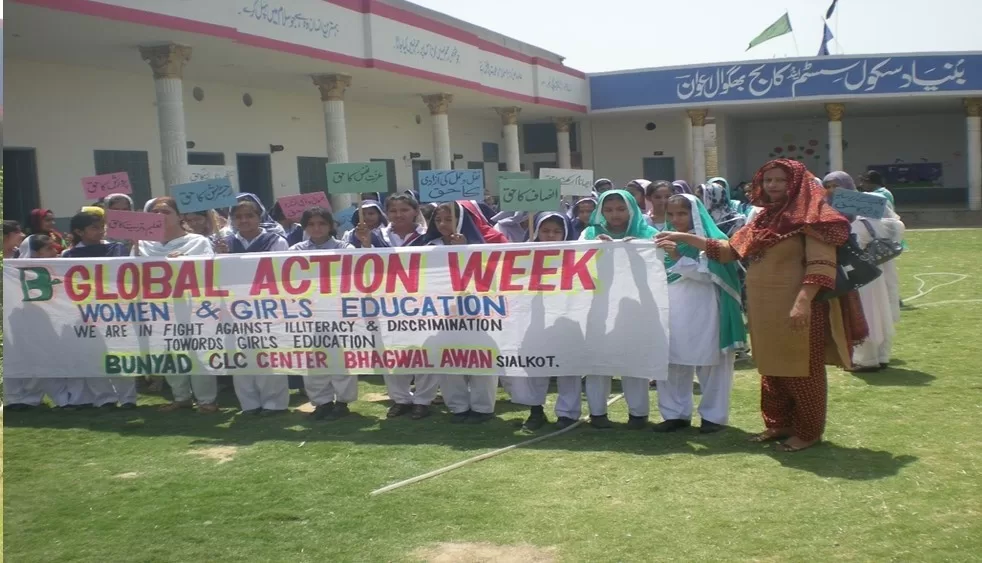
What financial constraints did you face?
For sustainable development, there must be financial sustainability. I need the confidence to walk through life. Learning gives you confidence because then you see choices, and when you have choices, then you have chances. That’s the only way to improve. The thing I feel, which I can express through this ancient Chinese saying, ‘Give a man a fish and you feed him for a day; teach a man to fish and you feed him for a lifetime.’ But I tell you, there is nothing as sweet as making a person walk on their own.
I just want people to empathize with others. If they believe in “La Illaha Illa-Allah Mohammad Rasool Allah, then they become ‘WE’ from ‘I’. And when you become ‘we’, then you will see that these properties, etc., don’t matter. But when you plant your little seed of love into the other person that is how it grows. Our culture has become void because it has gravitated toward negativity. We don’t know our history. But do you know that for 400 years, Muslims ruled Spain? They taught the West geometry, algebra, cleanliness, hygiene, astronomy, astrology, and medicine. Nowhere is it mentioned in any book of our history. Those times were the dark ages of the West. When we don’t know our past, how will we make a future?
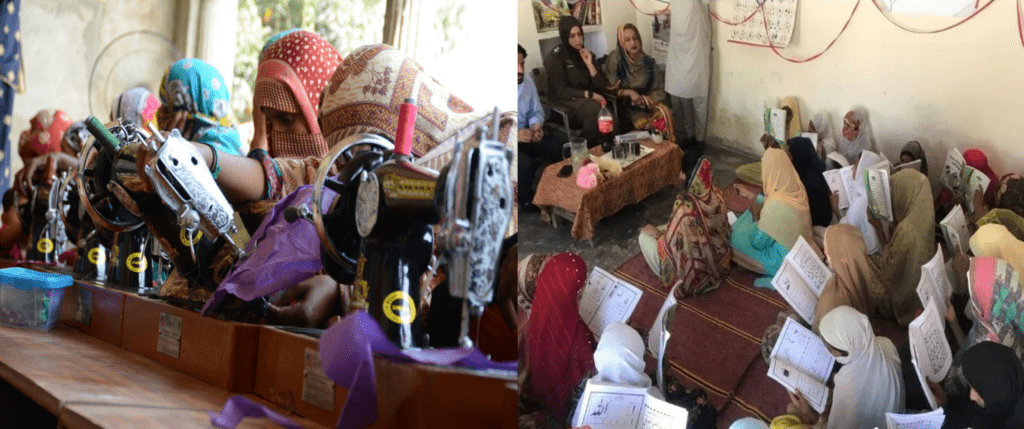
What is your take on the challenges faced by minorities?
Regarding minorities, I think we need to engage them. Have you seen the flag of Pakistan? How much is the white portion and how much is green? It’s less. Because minorities are always better organized. Muslims have not been touched by anyone. We are only doing it with the minorities.
There are many Hindus in Rahim Yar Khan, and we have worked with them too. But the Muslims who have become backward are no more. There is a lot of relevance in identity. We have a country’s point, which is hat everyone is free to go to their mosques and temples. Otherwise, our material is irrelevant. Our country is not for any one religion. We cannot cope with the response because we do not focus on this one thing.
Tell us about the success of your efforts and what difficulties you faced regarding your projects.
We have encountered many problems. One example is the epilepsy issue in Hafizabad. Our epilepsy camp now goes there twice a month. So far, we have cared for 200,000 people. Previously, when someone had epilepsy, their legs were chained, and they were beaten, similar to how buffaloes are treated, and they remained in that condition for life. We have changed this. We have given people hope to find jobs and take care of their land. Additionally, we have set up a nutrition camp, which is relevant. Our primary agenda is education, but we undertake various other activities.
For instance, last year we installed 89 hand pumps. We don’t have a middle class. Elitists saw the middle class as pathetic and easily manipulable. They did not contribute to its development. Our issue is that the local government has been weakened. Local government influences thinking, and that’s what we have lost.
I worked extensively in relief activities after the recent floods, but no one featured me in the newspapers. In the nutrition camp, women had been eating dry bread and salt for two months. Just imagine two months. We taught them how to cultivate onions. There was a tribe who claimed that only their women could do agriculture. I encouraged their men to participate as well. When I visited after the cultivation was done, they were eating onions like you would eat an apple, saying how sweet it is. Our class differences are widening, not decreasing. In Punjab, there are about 56,000 primary schools, correct me if I’m wrong. There are 7,000 to 8,000 middle schools and 10,000 high schools. Now, if a woman, who is like your sister, would you send her alone every day to school, walking 15-20 miles? No, why? Because our mentality doesn’t allow it, or because of the fear we have. In Islam, it is said that every woman is your sister, but who will teach this to the boys? Anyway, it continues. Mobility is a significant issue, as is education.
Shaheen Attiq-ur-Rehman’s journey from an elitist background to becoming a champion for the marginalized
communities in Pakistan is both inspiring and impactful. Her motivation stemmed from witnessing the harsh realities faced by the poor and underprivileged, particularly women, in the slums and rural areas. Through her dedication and determination, she spearheaded literacy initiatives that have directly benefited millions of individuals, especially women, across Punjab.
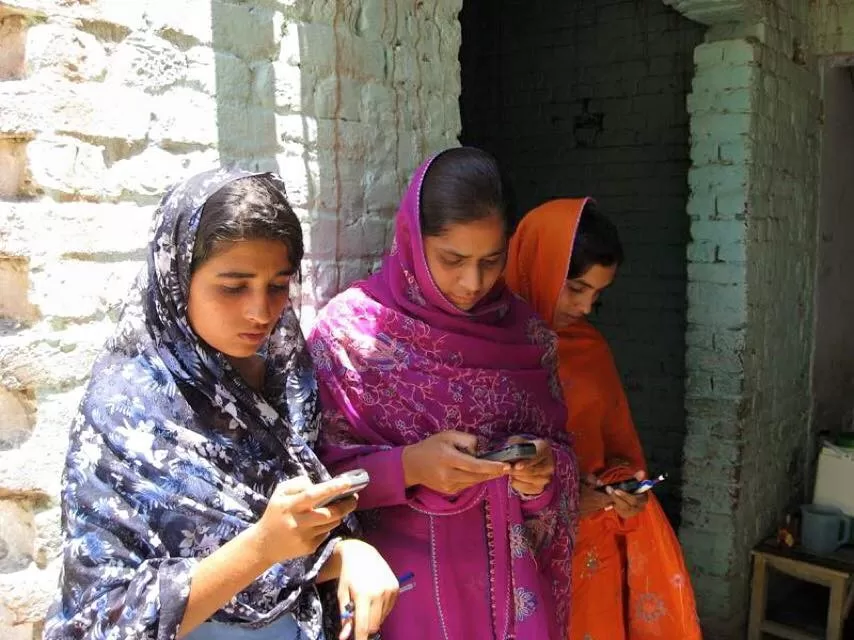
Facing resistance from bureaucratic structures, Shaheen Attiq-ur-Rehman persisted in her efforts to promote adult education, recognizing it as a fundamental step towards empowerment and societal change. Her work not only increased enrollment rates among women but also challenged prevailing attitudes and norms, particularly regarding gender roles and education.
Beyond literacy, Shaheen Attiq-ur-Rehman’s projects extended to addressing other social issues such as child labour, epilepsy care, and infrastructure development. Her holistic approach reflects a deep understanding of the multifaceted challenges faced by communities and the need for comprehensive solutions.
Internationally recognized for her contributions, Shaheen Attiq-ur-Rehman’s accolades from UNESCO and other organizations underscore the significance of her work on a global scale. Despite financial constraints and bureaucratic hurdles, her commitment to uplifting marginalized communities remains unwavering. Shaheen Attiq-ur-Rehman’s journey exemplifies the transformative power of grassroots initiatives and the profound impact of individual dedication to social change. Through her tireless efforts, she has not only improved the lives of countless individuals but also inspired others to advocate for a more equitable and inclusive society in Pakistan.


